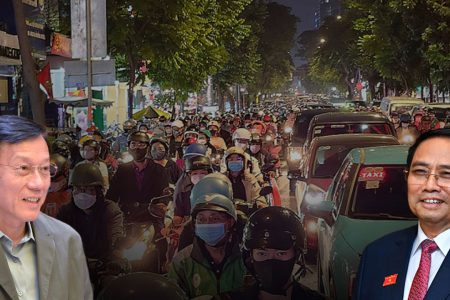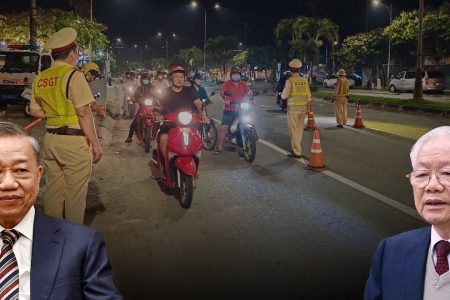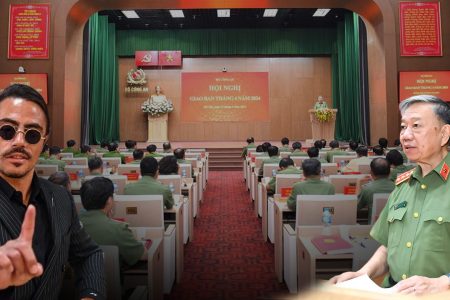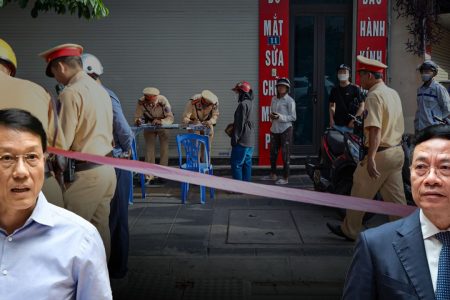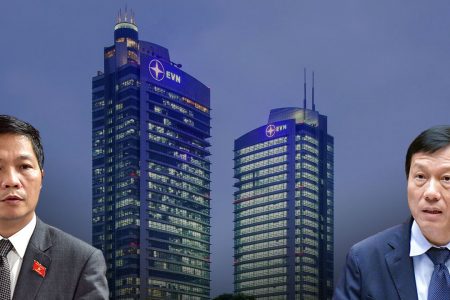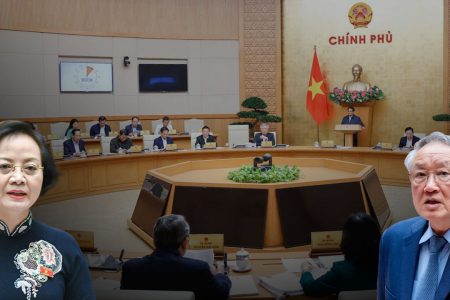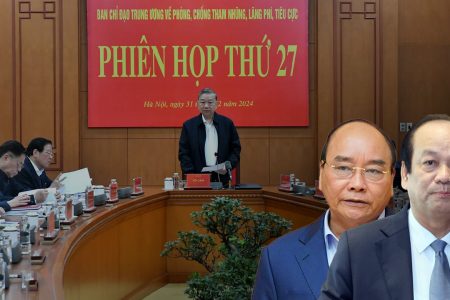
Over the past years, Vietnam has constantly sought to trade, learn technology, and acquire education and technology from Western countries, but seek to deny the values of democracy and human rights that these countries bring.
It is easy to see that in the past years, Vietnam’s economic, technological and educational partners from democratic countries were often not political allies of the Communist Party of Vietnam (CPV).
Desire to market, refuse democracy
Democracies from Asia to Europe, to North America, are developed countries with great consumption. Vietnam is always pursuing to have bilateral or multilateral trade agreements with these countries in order to sell its goods more conveniently, with high profits and fewer risks.
The sale of goods to Europe, America, or Australia, Japan, and Korea also means a quality passport, increasing the value of goods to easily penetrate other markets, creating strength for domestic production and rising national status.
However, in trade agreements, Western developed countries always require democracy and human rights. This is again the problem of the Vietnamese communist regime to find ways to limit and avoid being bound to easily suppress the local dissent.
The process of negotiating trade agreements, loans while ignoring democracy, human rights, and workers’ rights always makes Vietnam a lot of bargaining energy with international institutions.
This is easily seen through the Comprehensive and Progressive Agreement for Trans-Pacific Partnership (CPTPP), the Free Trade Agreement with the European Union (EVFTA), etc.
From the US perspective, I see that during the negotiation period Vietnam often shows its enduring attitude towards the activists, but quickly moves to arrest after the agreements are being signed.
Not long after the EVFTA was signed, Vietnamese police immediately arrested Dr. Pham Chi Dung and members of the Independent Journalists Association of Vietnam.
Mr. Pham Chi Dung had repeatedly called on the European Union to pressure Vietnam on human rights before signing EVFTA.
Or in October last year, right after the end of the Vietnam-US human rights dialogue, the Vietnamese government arrested activist Pham Doan Trang.
Vietnam does not seem to respect its commitments. The government explains for the arrest, suppression of civil liberties with allegations that it has only imprisoned law violators with the aim to suppress other voices.
Vietnam’s conception of democracy and human rights with the progressive world is still quite different. Because according to Vietnam’s international commitments in this area, peaceful democracy activists cannot be accused of violating the law.
On the other hand, according to the criticism of many people who have lived abroad, the Vietnamese government from 1975 until now has often turned prisoners of conscience into items, such as “human rights resources” to bargain with the democratic countries.
We can easily see this in the cases of Cu Huy Ha Vu, Nguyen Van Hai (Dieu Cay), Ta Phong Tan, Nguyen Van Dai, and Nguyen Ngoc Nhu Quynh, etc. who were forced to live in exile abroad. The government’s “humanitarian” self-indulgence does not conceal its true nature of deportation and exile of the local citizens.
Because after leaving, they can hardly return to their homeland, as long as the Communist Party monopolizes the leadership, or the regime’s perception of democracy and human rights really changes.
Democracy is “unsuitable” for Vietnam?
Contrary to the world’s leading economic openness, the country’s politics, society, media, and education are still dominated by the ruling communist party.
The explanation that Vietnamese society is not compatible with the democratic and human rights patterns of Western countries in my opinion is not convincing.
The current regime tries to prove that the multiparty system after the August 1945 revolution only resulted in failure. It also says the democratic government of the South after 1954 led to internal fights and conflicts between parties, and brought the enemy into the country. This argument led to the conclusion that Vietnam is not suitable for political pluralism is not convinced.
Vietnam now considers the practical action of democracy and human rights to lose sovereignty and threaten the regime. Strengthening the police, the courts, the prisons … and a lot of public opinion shapers are actually isolating Vietnam in the human democratic process.
The countries of Japan, Korea, and Taiwan have become economic dragons thanks to the opening up of democracy and human rights, a key factor beyond another threshold, for the nation to develop harmoniously and sustainably, and stimulate creativity.
Asian economic “dragons” in the past had many great cultural similarities with Vietnam, which were considered “East Asian culture.” These countries of the same literature have successfully built democracy on the general principles of mankind, and would Vietnam dismiss itself with its explanation “no feasible“?
The reality shows that the Vietnamese communist regime pragmatically views Western democracies as a place of trading but not political allies, like many democratic countries in East Asia.
No generations X, Y, Z for democracy
Around the world, there are democratic campaigns such as the Arab Spring to the democracy movement protesting against Beijing’s brutal intervention in Hongkong or Thai youngs demanding more democracy as well as defending the fledgling democracy in Myanmar that has just been usurped by the military. In common sense, these movements are led by young people who are the core force.
Sadly, I do not see such democratic movements in Vietnam, especially the commitment of young people.
In contrast to the movements that fight for democracy in the world, many of the most influential pillars of the democratic campaign in Vietnam are now largely older.
In the past, we used to have a generation of people who stood up and chased away French colonialism. They won. The generation wrote letters in blood to be enlisted to fight the US. They continued to win. Millions of people in the southern region stood up to defend the fledgling democracy. The generation of students in the South took to the streets before 1975 to ask the US to withdraw their troops.
That heroic gene of the Vietnamese seems to only appear in the past. From the generation born and raised during the war to generations X, Y, and Z in Vietnam today have the same denominator. They are interested in material life and enjoyment in the things allowed by the ruling party. They pay no attention to democracy and human rights.
Is it true that the people have been successfully “brainwashed” by the regime and the Vietnamese don’t need democracy?
A few have an interest in democracy and human rights but due to economic difficulties and suppression, they have been forced not to think much about and keep restrain.
The aspiration from domestic activists at present is not enough to ignite the fire in inert social material, which does not represent the need for democracy and human rights.
Vietnamese society is showing how difficult it is to create the Peaceful Revolution. The majority of people instead of giving affection and protection to the fighters and activists are suspicious, alienated, and disgruntled.
The success of the Communist Party of Vietnam drives people to care about money and fear democracy.
However, sadly, the more successful the Party, the greater the failure to democracy and human rights of the country.
Thoibao.de (Translated)







